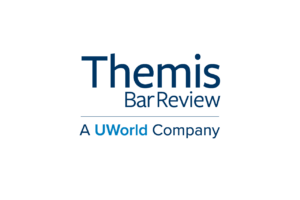Should Governments Crack Down On Fake Job Postings?
For those who are searching for jobs, having to deal with these fake postings is discouraging and can contribute to job search burn out.
 For most people, searching for a job is a time-consuming process. They spend hours or even days researching companies and preparing their paperwork. In most cases, their application will be rejected or they may never hear back from them.
For most people, searching for a job is a time-consuming process. They spend hours or even days researching companies and preparing their paperwork. In most cases, their application will be rejected or they may never hear back from them.
But what if the job you applied for was fake? Apparently, these types of job postings exist, and they are called ghost job listings or simply ghost jobs. A 2023 report from Clarify Capital goes into detail about ghost jobs and why they exist.
While the details vary, ghost jobs fall into one of two categories. The first are advertised job openings although employers have no intention of actually hiring anyone. Companies do this to project an image that they are growing, to placate overworked employees, gauge salary demands in order to determine whether to give existing employees raises, or to have a list of people who may be available in the future.

Back To Basics: 6 Tech Tips Every Small Firm Needs To Hear
The second type of ghost jobs are those that have requirements that are so strict and specific that only a few people will be eligible. Usually this is the case where the company has already selected who they want to hire internally but is required to make the job opening public due to legal requirements (although this requirement only seems to apply for federal contracting jobs) or contractual requirements such as a collective bargaining agreement. These job postings are also suspected to automatically reject unemployed candidates and instead target people who are already employed and want to leave their current job.
Depending on who you ask, the prevalence of ghost jobs is either rare or common. But for those who are searching for jobs, having to deal with these fake job postings is discouraging and can contribute to job search burn out.
Currently, no laws ban or regulate the use of ghost jobs. Regulating ghost jobs would likely be a state law matter because local governments are typically in a better position to gauge the job market in their sphere of influence. However, the Federal Trade Commission (FTC) could also step in as they have recently taken an interest in employment matters. The FTC made headlines last month when it voted 3-2 to ban employee noncompete agreements nationwide. Since one of the duties of the FTC is to combat false advertising, any court challenges are likely to fail.
In Ontario, Canada, Labour Minister David Piccini is discouraging ghost job postings by proposing that larger companies be required to disclose whether an employment position needs to be filled as soon as possible or if they are looking for candidates to consider in the future.
Sponsored

Raising The Bar in Bar Prep

Trust The Process: How To Build And Manage Workflows In Law Firms

How To Build And Manage Your Law Firm Rate Sheet

Trust The Process: How To Build And Manage Workflows In Law Firms
However, any attempt to regulate ghost jobs should address a few points. First, employers should have a chance to remove obsolete job opening advertisements if they simply forgot to do so.
Also, overly strict rules could force employers to choose among candidates whom they do not like, may not fit with the company’s goals, or can be dangerous. This is particularly important for leadership positions or those requiring special skills. Hiring the wrong candidate can waste the company’s time and money.
In the meantime, it is on the job searchers to be on the lookout for ghost jobs. Ideally, try to establish contacts and a rapport with one or a few people at the companies or firms you want to work for. Preferably people who will advocate for you. These people will give you better leads and a heads up on which jobs to avoid.
But the harsh reality is that you will have to apply for the job even if it is fake. There is no way to know for sure and you may miss out on an opportunity.
So it seems like businesses have incentives to post job openings they do not intend to fill. Governments should investigate this to make sure that job seekers are not led on wild goose chases while giving enough flexibility to allow businesses to hire anyone based on good business judgment. The announcement of an investigation alone should put companies on notice to reexamine their hiring strategies.
Sponsored

How Savvy Lawyers Build Their Law Firm Rate Sheet

Back To Basics: 6 Tech Tips Every Small Firm Needs To Hear
Steven Chung is a tax attorney in Los Angeles, California. He helps people with basic tax planning and resolve tax disputes. He is also sympathetic to people with large student loans. He can be reached via email at stevenchungatl@gmail.com. Or you can connect with him on Twitter (@stevenchung) and connect with him on LinkedIn.







